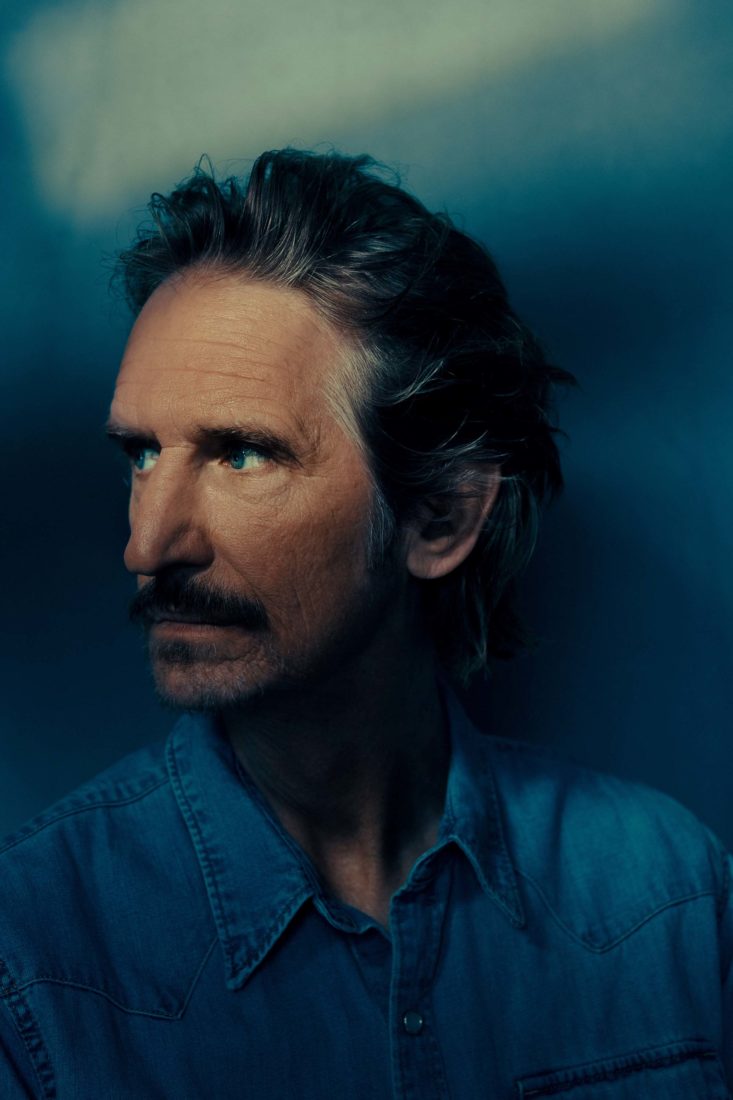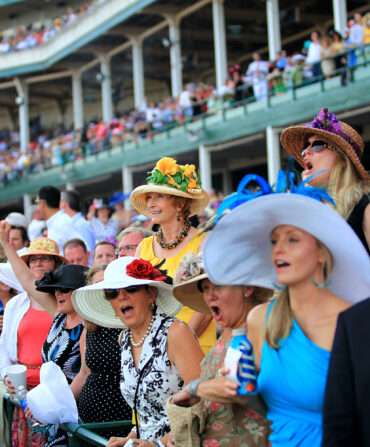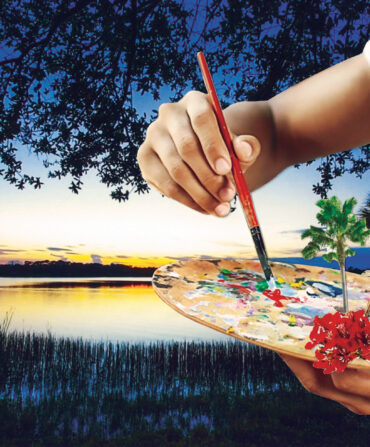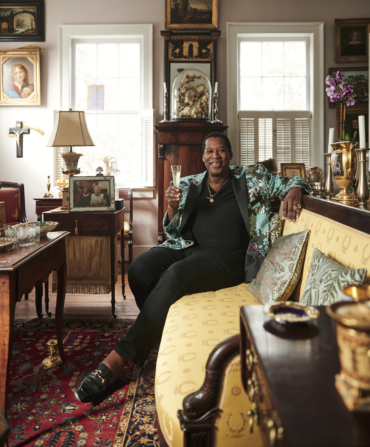On film, Ray McKinnon has punched out George Clooney (in O Brother, Where Art Thou?) and been outcoached by Sandra Bullock (in The Blind Side). On TV, he played a doomed preacher on Deadwood and a crafty U.S. attorney in Sons of Anarchy. In real life, he owns an Oscar for The Accountant—a short film he wrote, starred in, directed, and coproduced—and a Peabody for Rectify, the TV series he created about a man wrongly imprisoned for nineteen years who returns to his hometown and tries to start over. That show was set in small-town Georgia, a familiar place to McKinnon—he grew up in Adel, in the south-central part of the state. At age sixty-one, he’s at home in both Adel and L.A., the same way he’s at home on either side of the camera. His latest gig: a role as motorsports engineer Phil Remington in the new movie Ford v Ferrari.
Were you much of a car guy growing up?
Despite the fact that my grandfather and father owned the Ford dealership in my little hometown—I did like going to the Ford place, as we called it, and getting an ice-cold Coca-Cola and some peanuts—I didn’t really care about looking under hoods. So. [Laughs.] This might have been my greatest acting challenge.
Where did you first get the spark to act?
My mom acted in college—she did summer stock in New England, then she came back home and directed school plays. I joked that when I saw Waiting for Guffman, I thought it was a documentary. My oldest sister was best actress in the region three years in a row. But I was too self-conscious. I never did anything in high school. It wasn’t until, like, my fourteenth year at Valdosta State that I tried out for a play, and I loved it. I loved being in a group that had a purpose.
What was your path to Hollywood?
Circuitous. I suppose my twenties were mostly about will I or will I not make it out of my twenties alive. And once I did that, I somewhat got my act together. I started doing roles in the Atlanta area: In the Heat of the Night, that TV show I’ll Fly Away, or whatever movie or made-for-TV movie would come to town. I always said that if you couldn’t get a role in In the Heat of the Night in those days, if you were an Atlanta actor, you should strongly reconsider your career choice. I actually played a crack dealer one year and got killed, and came back as the town newspaper editor.
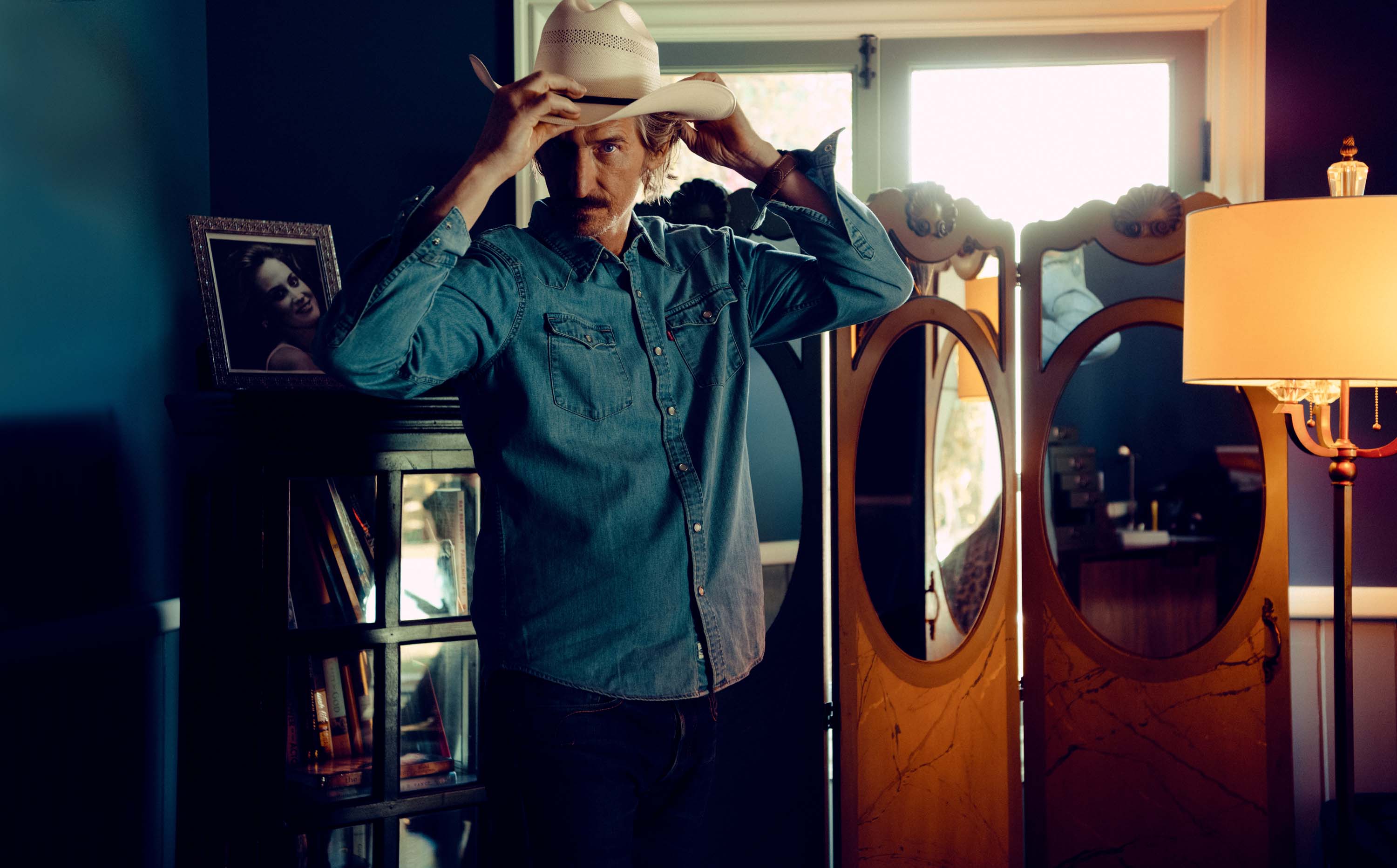
Austin Hargrave | Shirt by Levi’s. Jeans by RRL by Ralph Lauren. Watch by Panerai. Hat, McKinnon’s own.
From Deadwood to The Blind Side, accents have been a big part of projects you’ve taken on. Have you ever been on a set where someone was just mangling a Southern accent?
Uhhhhhhh…yes.
Did you feel like you could say anything?
It depends on the situation, but I’ve said, “When in doubt, do less.” Whenever I hear “any-thin” for “anything,” which is kind of a dialect coach’s 101 to tell non-Southerners—that one still gets to me. I had an actor on Rectify who came back from the off-season and started saying “any-thin.” And I said, “Why are you saying that? You didn’t say that before.” And he said, “My dialect coach taught me that in a play I was doing.” I said, “Where is the dialect coach from?” He said, “Ireland.” I said, “Well, who are you gonna listen to?”
Do you think your accent has made a difference one way or the other in your career?
I suppose, at some point, both. At one point people were like, It’s a Southern role, give it to Ray McKinnon. And then after a while, that’s what you’re stuck in. Later, people gave me the opportunity to do non-Southern roles, which I can do, right? It’s just another dialect. So now it’s not such a big typecasting thing.
Do you feel some obligation to tell Southern stories?
I remember when I first saw Sling Blade, I didn’t know anything about it. There was no hype about it yet. And from the beginning, it just felt so real. And as it went on and on, and I found out who Billy Bob [Thornton] was, I was like, Oh my God, they let a Southern guy make a Southern movie. And then I thought, God, I hope that’s not the only slot. But now there’s a second wave of Southern storytellers—men and women of all different colors and cultures—and for me that’s very exciting, because you want to see things reflected back.
I’m from the South, and yes, that has definitely affected who I am. But I’m a human being. And what I try to do as a storyteller, and what I look for in stories, is something that’s common about the human condition and the human experience.


